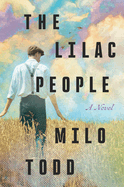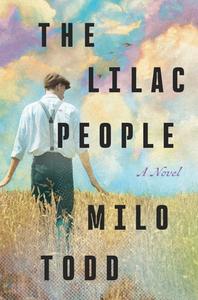
 With The Lilac People, Milo Todd delves into the nearly lost history of trans people in the Holocaust. Integrating imagined characters with historical research, Todd's novel brings humanity and specificity to atrocities that are still being uncovered. The heartbreaking result honors love and friendship, and ends with hope for one built family of survivors.
With The Lilac People, Milo Todd delves into the nearly lost history of trans people in the Holocaust. Integrating imagined characters with historical research, Todd's novel brings humanity and specificity to atrocities that are still being uncovered. The heartbreaking result honors love and friendship, and ends with hope for one built family of survivors.
The opening pages find Bertie on the outskirts of the German city of Ulm in 1945. He has ridden out the war with his partner, Sofie, "on a little farm that was not theirs," growing vegetables, raising chickens and one cow. It is an unadorned but not unpleasant life, and they know they are lucky. "The apple blossoms were beginning to show on their three trees at the far edge of their land, pollen spilling out as they blushed." Then, weeks after the news that the Allies have freed camp prisoners, Bertie finds a body in the garden. Dressed in rags from the camp, the young man is alive, barely. "[The Allies] sent all the pink triangles to jail. And all the black triangles that qualified the same," he tells Bertie. He wears a black triangle. He is a trans man--like Bertie. This changes everything for Sofie and Bertie, who will be greatly endangered by their choice to hide and protect Karl.
But Bertie finds that he must help, to confront his survivor's guilt, his failure to protect his own community, and (as a hostile Allied lieutenant accuses) his complicity in Germany's crimes. Karl's appearance takes Bertie back to 1932 Berlin, where Bertie assists Dr. Magnus Hirschfeld at the Institute for Sexual Science and is a member of a vibrant queer and trans community, with a tight-knit group of friends that is lost on the Night of the Long Knives. Karl's existence brings hope, guilt, and memory. To save Karl and themselves, Bertie and Sofie must leave the farm's relative safety.
The Lilac People is filled with music, with an emphasis on the queer anthem "The Lilac Song." Sofie is a pianist who gives Karl piano lessons alongside Bertie's instruction in "how to transvest," or pass as a cis man. The song is an important piece of history and means of accessing a pride in community that's been all but destroyed. Notes from the author detail the research required for this writing, what is true history and what is fiction, and just how limited is the historical record on Germany's queer and trans communities in this era.
The Lilac People is emotionally wrenching, but also lovely in its details, the humanity of its characters, and the resilience and hope at its end, when a fresh start seems possible. Todd has made an enormous contribution to historical fiction with his own research and this beautiful, touching narrative. --Julia Kastner, blogger at pagesofjulia
Shelf Talker: A trans man survives with a small chosen family, from Berlin's lively queer scene in 1932 through the Holocaust and the Allies' hostility, in this moving historical novel.

